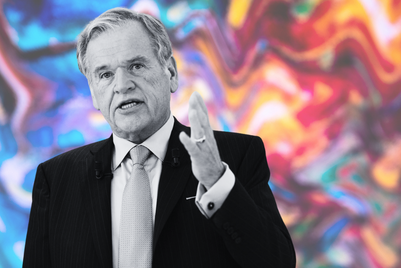
While Covid has created new opportunities for CMOs to help companies understand and transition toward new consumer behaviours, marketers in Asia Pacific say they’re struggling to match their teams' talent with what’s required of them.
New qualitative research released today from open talent firm Neon Leaders, seen exclusively by Campaign Asia-Pacific, reveals how many CMOs feel overwhelmed and under-resourced, tasked with leading a transition to new customer experiences while managing data challenges and short-term sales pressures.
What emerged from lengthy interviews with more than 30 CMOs across the region was that they were struggling to realign their talent pools with not only new technical expertise and those able to deliver short-term sales, but also with critical, forward-thinking, long-term strategists who could challenge the status quo. In essence, marketing teams today are expected to have full a 360-degree perspective with capabilities to accomplish everything at once.
"I can’t do everything I need to do with the people I have."
—Peter Larko, director of marketing and PR, Mercedes-Benz Hong Kong
While the research bodes well for purveyors of open talent like Neon Leaders, it is not merely self-serving. it paints a far more complex picture of talent challenges at a time when employees themselves are demanding greater levels of autonomy and agencies themselves are struggling to retain and deliver these same skills to brand marketers. Recent articles in Campaign documenting the latest talent crunch have focused on agencies, but this research focuses on the needs of marketers’ in-house teams.
Too many challenges
In interviews, CMOs explained they have more to do than ever before. “I can’t do everything I need to do with the people I have,” said Peter Larko, the director of marketing and PR for Mercedes-Benz in Hong Kong.
The research report notes how the multifaceted list of a marketers’ responsibilities continues to grow, encompassing brand-building, product marketing, customer experience, media spend, social media, events, research, communications and increasingly leading the digital transformations of businesses.
Part of the problem, the report says, is that under pressure to prove its worth to the business, marketing becomes known as ‘the yes department’ and accepts all new challenges thrown at it.
“We sometimes spread ourselves too thin rather than being clear on what we do and don’t do,” said Andrea de Vincentiis, Asia-Pacific head of B2B marketing at HSBC. “Focusing on less will certainly result in more.”
"We’re going to lose an entire generation of marketers, because many leaders see marketing as just digital or social."
—Erica Kerner, SVP marketing strategy & partnerships, ONE Championship
CMOs in the survey once again related how digital marketing has flooded them with a deluge of information, data, and metrics that make it easier to measure success. This has led to a spate of data-science and analytical hiring, which is changing the face of marketing.
“Right-brained thinkers will invest more in digital marketing because of the ability to see and track data,” notes Simon Large, Cathay Pacific customer director. “It finally turns what many saw as a frustrating art into an exact science.”
With the need to become more focused and performance-driven, however, some senior marketers increasingly feel steered toward short-term campaigns with immediately measurable results—to the detriment of long-term, brand-building goals.
“There has been a systematic build-up of myopia in a marketer’s job,” said Rupen Desai, global CMO of Dole Sunshine. “Unless the short-term thinking is balanced with a long-term strategic view, the role will continue to get downgraded in its ability to impact.”
This tactical focus on conversion rates, costs of acquisition and customer engagement, paired with the prioritisation of time and speed, means less time spent understanding audiences and generating insights to apply to customer experiences. While data is meant to inform strategy, it’s now being applied so quickly that it has seemingly become the strategy in itself, supplanting the more traditional role of marketers.
"The type of people that we need in marketing is going to have to change."
—Kirsty Howl, head of institutional marketing, Australia & International, ANZ
“We’re going to lose an entire generation of marketers, because many leaders see marketing as just digital or social and don’t see marketing as the whole 360 degrees based on consumer insights,” said Erica Kerner, senior vice president of marketing strategy and partnerships at ONE Championship.
Marketers' in-house talent challenges
What all this means is that marketers’ in-house talent needs have become too complex to manage on their own. They need technical experts and short-term executors, but also long-term strategists, and, for many of them above all else, critical thinkers.
“[It’s] hard to find people who will push back and challenge,” said Natalie Truong, Mercer’s CMO for Asia, Middle East and Africa, who feels there is “too much thinking inside the box".
“We can’t only rely on internal resources to think about how to do things in a different way,” added Ronald Wong, marketing director for the Yuu rewards club at DFI Retail Group.
Wong isn’t alone in thinking part of the answer lies outside in-house teams.
“The type of people that we need in marketing is going to have to change,” said Kirsty Howl, head of institutional marketing for Australia and International at ANZ. “We will need less generic roles but more subject matter and technical experts, and that may mean less full-time roles but tapping the experts when you need them.”

Here is where the pitch for open talent comes in. As we already know from accounts of ‘the great resignation’, more and more experienced talent is looking to work in a more flexible way to traditional full-time employment. “This provides opportunities to bring in deep expertise, different perspectives, work with new talent models, and accelerate pace,” says Jennifer Woollford, founder and director of Neon Leaders behind the study.
She explains this isn’t about tapping freelancers to get an executional task done, nor is it purely advisory like working with consultants. Rather it involves building a team of internal and external resources to solve specific challenges with the necessary skills and speed.
And the appeal is growing. While about 21% of marketers currently use open talent, 93% of the CMOs surveyed say they plan to adopt the model in the next six months. The results may be less surprising coming from an open talent firm like Neon Leaders, but so is the sentiment considering marketers’ need for new skills.
"Low turnover is usually a sign of an inclusive and supportive culture, but makes it all the more important for teams to think 'outside-in'."
—Lyndon Morant, marketing director, integrated marketing communications, Colgate-Palmolive
The knock against open talent by some is that it may absolve marketing chiefs from listening to and investing in training their own teams. Woollford argues this couldn’t be further from the truth: bringing in external talent is a critical part of upskilling staff since 70% of learning is done on the job, and external talent help bring those skills to the entire team from outside, she says. Furthermore, she argues, the model is not about mass layoffs but could simply be budgeted through an employee vacancy, carrying one less full-timer and re-investing the overhead to bring in different skills as required.
“We see many CMOs who are very protective of their teams, especially when faced with cost-constraints, and there is huge opportunity to align the needs of the CMOs with those of their teams,” Woollford says. She sees increased flexibility as an attractive shared value.
Amid the looming ‘brain drain’ threat, many marketing communications leaders have become retention-obsessed, some with personal KPIs attached to suppressing churn levels. While this may benefit employees and has no doubt contributed to healthier work environments, retention alone is an ineffective talent strategy and isn’t always great for diversity either.
Instead, CMOs are realising that flexibility and agility may be the most optimal talent goals that encourage healthy retention in the process.
As Colgate-Palmolive marketing director Lyndon Morant notes: “Low turnover is usually a sign of an inclusive and supportive culture, but makes it all the more important for teams to think 'outside-in’”.





.jpg&h=334&w=500&q=100&v=20250320&c=1)
.jpg&h=334&w=500&q=100&v=20250320&c=1)
+(1).jpg&h=334&w=500&q=100&v=20250320&c=1)



.jpg&h=334&w=500&q=100&v=20250320&c=1)







